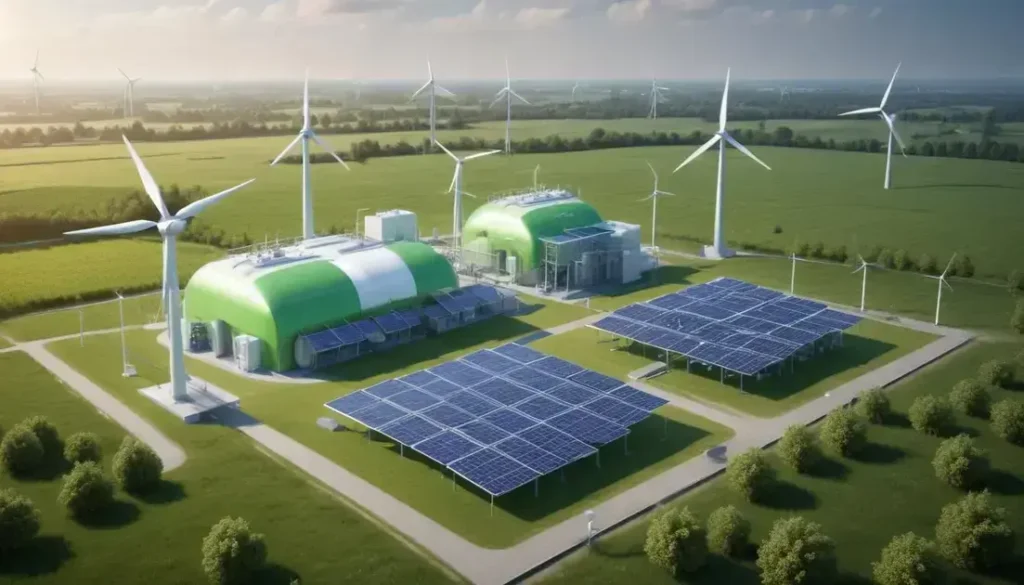Plastic pollution is a significant environmental issue affecting marine ecosystems, driven by the misuse of single-use plastics, with sustainable practices and collaborative efforts among governments, businesses, and individuals being essential for effective solutions and reducing overall plastic waste.
Plastic pollution has become one of the most pressing environmental issues today. In fact, plastic pollution not only threatens ecosystems but also impacts businesses worldwide. What can Australian companies do in response to these challenges?
Introduction to plastic pollution and its impact
Plastic pollution is a significant environmental challenge facing our planet today. With millions of tonnes of plastic waste entering oceans each year, the impact is dire. Marine life suffers greatly, as plastic debris threatens their habitats and health. Many species ingest plastics, mistaking them for food, leading to injury and, ultimately, death.
The impact on human health is also concerning. Chemicals from plastics can leach into food and water sources, raising questions about safety and long-term consequences. As communities become more aware of these risks, there is a growing demand for sustainable practices to reduce plastic waste.
In Australia, a nation with a strong commitment to environmental protection, the call for action against plastic pollution has amplified. Policies promoting recycling and banning single-use plastics are gaining traction. Australian businesses are adapting quickly to these changes, seeking innovative solutions to minimise their environmental footprint.
As we navigate through these challenges, understanding the full extent of plastic pollution’s impact becomes crucial. Collaborative efforts among governments, businesses, and communities are essential to create effective strategies. Without swift action, the future of our oceans, wildlife, and even our health hangs in the balance.
The role of global brands in plastic waste
Global brands play a pivotal role in the issue of plastic waste. As leaders in their industries, they significantly influence consumer behaviour and set industry standards. Many consumers expect these brands to take responsibility for their environmental footprint, including their plastic usage.
Companies are increasingly recognising the importance of implementing sustainable practices. They are investing in alternatives to single-use plastics and enhancing their packaging strategies. For instance, brands are transitioning to biodegradable materials and increasing their use of recycled plastics.
Transparency is essential in this effort. Consumers are now keenly aware of a brand’s environmental policies and often research their sustainability commitments. Many global brands are thus compelled to publish sustainability reports that outline their progress in reducing plastic waste.
Furthermore, partnerships between brands and environmental organisations are becoming more common. These collaborations aim to promote awareness and drive change. By working together, they can tackle the plastic crisis more effectively and promote meaningful solutions. Ultimately, the actions of global brands significantly shape public perceptions and behaviours around plastic waste, making their role in this crisis crucial for a sustainable future.
Data analysis on branded waste by companies
Data analysis on branded waste reveals critical insights into how major companies contribute to plastic pollution. Recent studies indicate that a significant portion of waste in our oceans is linked to well-known brands. Understanding this data helps highlight the environmental responsibility of these companies.
Analysing the volume and types of waste generated by specific brands can identify trends. For instance, certain brands may produce more single-use plastic than others, prompting consumers to question their sustainability practices. This pressure drives companies to seek innovative solutions to reduce waste and enhance their public image.
Moreover, sharing data on branded waste fosters transparency. Companies that actively engage in reporting their waste statistics demonstrate accountability. This commitment not only attracts environmentally conscious consumers but also encourages other businesses to follow suit and improve their practices.
Utilising advanced data analytics tools provides a clearer picture of the overall impact of branded waste. By synthesising this information, stakeholders can develop targeted initiatives to combat plastic pollution. Collaborative efforts across industries could ultimately lead to a significant reduction in plastic waste and a shift towards a more sustainable future.
Top companies contributing to plastic pollution
Several major companies are repeatedly identified as key contributors to plastic pollution. These brands, often leading players in their industries, generate substantial amounts of single-use plastic products, which frequently end up in landfills and oceans.
For instance, research highlights that packaging from food and beverage giants disproportionately contributes to global plastic waste. These companies are under increasing scrutiny from environmental groups and consumers alike. As more people become aware of these issues, they demand accountability and change from these corporations.
In response, some brands are beginning to adopt more sustainable practices. They invest in recycling initiatives and seek alternatives to conventional plastics. For example, companies are exploring biodegradable packaging solutions and encouraging refillable options for their products.
However, the challenge remains significant. Although progress is being made, the sheer volume of plastic produced by top companies still far exceeds the amount being recycled. Effective collaboration across the industry, regulatory measures, and consumer advocacy are crucial in driving change and reducing the plastic footprint of these companies.
Australia’s stance on global plastic issues
Australia’s stance on global plastic issues has been evolving, particularly in response to the growing recognition of plastic pollution’s impact on marine ecosystems. The government and various organisations have acknowledged the need for a robust strategy to combat this problem. In recent years, policies have been introduced to limit single-use plastics and enhance recycling efforts.
The Australian government has committed to the National Plastics Plan, aiming to reduce unnecessary plastic consumption and improve waste management systems. This initiative focuses on increasing recycling rates, enhancing product redesign to minimise waste, and discouraging the use of problematic plastics.
Public awareness and pressure from environmental groups have significantly influenced policy changes. Citizens are demanding action from their leaders, advocating for stricter regulations on plastic production and better management of plastic waste. As a result, many Australian states are implementing bans on specific single-use plastic items.
Additionally, partnerships between the government, businesses, and non-profits are forming to tackle plastic pollution collaboratively. These efforts aim to align with international agreements and commitments, showcasing Australia’s dedication to contributing to a global solution for plastic waste management and environmental sustainability.
Implications for Australian exporters
The implications of plastic pollution for Australian exporters are substantial and multifaceted. As global awareness around environmental issues rises, many countries are tightening regulations on plastic use and waste management. Australian exporters need to adapt to these changes to maintain access to international markets.
For instance, stricter sustainability standards can affect the export of products, particularly in sectors like agriculture and manufacturing, where packaging plays a critical role. Australian exporters must ensure that their packaging meets these new standards, which may require investing in more sustainable materials and practices.
Failure to adapt could lead to significant financial losses. Brands that neglect environmental concerns risk losing consumers and market share internationally, as buyers increasingly prefer products from companies committed to sustainability. Therefore, Australian exporters have a pressing need to innovate and embrace environmentally friendly practices.
In addition, enhancing sustainability can offer a competitive advantage. By positioning themselves as leaders in sustainable practices, Australian exporters can attract a growing demographic of eco-conscious consumers. Furthermore, compliance with international sustainability guidelines can open up new market opportunities and strengthen trade relationships. Overall, addressing the challenges posed by plastic pollution can ultimately lead to a more resilient and profitable export sector.
Strategies for reducing plastic waste
Implementing effective strategies for reducing plastic waste is crucial in combating pollution and promoting sustainability. One of the primary approaches involves redesigning products and packaging to minimise plastic use. Companies are encouraged to invest in biodegradable materials that can effectively replace conventional plastics.
Another key strategy is improving recycling systems. This includes increasing public awareness and education on proper recycling methods. By making recycling more accessible and understandable, communities can significantly reduce the amount of plastic that ends up in landfills and oceans.
Furthermore, businesses can adopt circular economy principles. This involves rethinking the entire lifecycle of products, focusing on reuse and recovery of materials to limit new plastic production. Partnering with organisations that specialise in waste reduction can also amplify efforts.
Engaging with consumers is vital as well. Brands should promote initiatives such as take-back schemes, encouraging customers to return used products for proper recycling or repurposing. By fostering a culture of responsibility, companies can help shift consumer behaviour towards more sustainable practices.
Finally, corporations can advocate for stricter regulations regarding plastic production and waste management. Collaborating with governments to establish comprehensive policies will create a more supportive framework for reducing plastic waste effectively.
The importance of transparent reporting
The importance of transparent reporting in tackling plastic pollution cannot be overstated. Companies that disclose their plastic use and waste management practices provide critical information to consumers, stakeholders, and regulatory bodies. This transparency fosters trust and accountability, demonstrating a commitment to environmental responsibility.
Publicly sharing data on plastic consumption allows consumers to make informed choices. When companies publish detailed reports, it empowers customers to support brands that prioritise sustainability. In turn, this can drive competition among businesses to adopt better practices and reduce plastic waste.
Furthermore, transparent reporting aids in establishing benchmarks for industry standards. By openly sharing progress, companies provide valuable insights that can help shape regulations and promote industry-wide sustainability initiatives. This can push for stronger policies aimed at reducing plastic consumption and improving recycling rates.
For non-profit organisations and advocacy groups, access to transparent data is vital. It enables them to hold companies accountable for their environmental impact and helps drive public awareness campaigns. As consumers become more eco-conscious, they expect brands to take responsibility for their ecological footprint. In essence, transparent reporting is a key tool for fostering a collaborative approach to combat plastic pollution and promoting a sustainable future.
Call for production caps on plastic
The call for production caps on plastic has gained significant momentum as awareness of plastic pollution continues to rise. Many environmental advocates argue that limiting the production of virgin plastics is essential to tackle this global crisis. By imposing caps, governments can incentivise industries to transition towards more sustainable practices and materials.
Setting production limits encourages companies to explore alternatives to traditional plastics, such as biodegradable or recycled materials. This shift not only helps reduce the overall plastic footprint but also promotes innovation in packaging and product design. As companies adapt to these new regulations, they are likely to invest in research and development to create environmentally friendly solutions.
The benefits of capping plastic production extend beyond environmental impacts. It can stimulate the economy by creating new job opportunities in the green technology sector. Industries focused on developing sustainable materials will need skilled workers, which can help boost local economies and promote sustainable growth.
Moreover, production caps can lead to enhanced cooperation between governments, businesses, and community groups. Collaborative efforts will be crucial in successfully reducing plastic pollution and establishing a circular economy that prioritises sustainability. Overall, implementing production caps on plastic represents a significant step towards a cleaner and healthier planet.
Extended Producer Responsibility policies
Extended Producer Responsibility (EPR) policies play a critical role in addressing plastic waste by holding manufacturers accountable for the entire lifecycle of their products. These policies require producers to take responsibility for the collection, recycling, and safe disposal of plastic goods once they reach the end of their useful life. This shift encourages companies to design products that are easier to recycle and have a reduced environmental impact.
Implementing EPR can lead to significant environmental benefits. By integrating waste management costs into the product price, it incentivises manufacturers to adopt sustainable practices. This can include using recyclable materials or redesigning products to minimise plastic usage, ultimately reducing the volume of waste entering landfills and oceans.
In addition to environmental advantages, EPR policies can stimulate economic growth. As companies work to meet these regulations, new businesses focused on recycling and waste management can emerge. This leads to job creation in sectors dedicated to sustainability and innovation.
Furthermore, EPR promotes consumer awareness regarding plastic waste. As manufacturers establish take-back programs and transparent waste management practices, consumers become more informed about their purchases and the impacts on the environment. Overall, Extended Producer Responsibility is a key strategy for driving change within industries and fostering a more sustainable future.
Collaborative efforts in tackling plastic pollution
Collaborative efforts in tackling plastic pollution have emerged as a powerful strategy to address this global crisis. By uniting governments, businesses, non-profit organisations, and communities, stakeholders can share resources, knowledge, and technologies to create impactful solutions.
One of the key benefits of collaboration is the pooling of expertise. For instance, businesses can leverage the innovative capabilities of start-ups focused on sustainable materials, while NGOs can provide valuable insights into community engagement and education. These partnerships can lead to the development of effective recycling programs and initiatives aimed at reducing plastic consumption.
Additionally, public-private partnerships are instrumental in establishing comprehensive waste management systems. Governments can set regulatory frameworks that encourage companies to prioritise sustainability. This alignment drives industries to adopt greener practices, fostering a circular economy where materials are reused and repurposed.
Community involvement is equally important. Local groups can participate in clean-up efforts, raising awareness about plastic pollution and its consequences. Educational campaigns can empower individuals to make informed choices, such as reducing single-use plastic usage in their daily lives.
Ultimately, the strength of collaborative efforts lies in their ability to implement systemic change. By working collectively, organisations can create a significant impact on the reduction of plastic pollution, paving the way for a cleaner, healthier environment.
Future outlook on sustainability in Australia
The future outlook on sustainability in Australia is poised to evolve significantly as both government and community initiatives gain momentum. With increasing awareness around climate change and environmental degradation, Australians are demanding more from their leaders and businesses regarding sustainable practices.
Transitioning towards renewable energy sources is a critical aspect of this sustainability drive. Australia possesses abundant resources like solar and wind energy, which can significantly reduce reliance on fossil fuels. The government is investing in infrastructure to support this shift, aiming to meet net-zero emission targets in the coming decades.
Moreover, sustainable agriculture is gaining attention. The agricultural sector is exploring practices that not only boost productivity but also enhance environmental stewardship. This includes soil conservation techniques, water management strategies, and reduced chemical usage. By adopting these methods, Australian farmers can contribute to the broader sustainability goals while maintaining their livelihoods.
Additionally, public engagement in sustainability initiatives, such as community-led conservation projects and waste reduction campaigns, is strengthening. Australians are increasingly participating in local efforts to combat plastic pollution and improve recycling rates.
The combined efforts of individuals, businesses, and governments will be essential to creating a sustainable future for Australia. By fostering innovation and collaboration, the nation is well-positioned to tackle environmental challenges and enhance the quality of life for all its citizens.
In Conclusion: The Path Towards Sustainability
Australia is on an important journey towards a more sustainable future. From embracing renewable energy to enhancing waste management practices, every effort counts in the fight against plastic pollution and environmental degradation.
Collaboration among governments, businesses, and individuals will be key to achieving long-term sustainability goals. By working together, we can innovate and create solutions that benefit both our economy and the environment.
As we move forward, public awareness and engagement will remain vital. Every small action contributes to a bigger change. Together, Australians can build a healthier planet for future generations and ensure that sustainability becomes a part of everyday life.
Investing in sustainable practices today will create a better tomorrow for all. Let’s make the commitment to protect our environment and support a thriving, sustainable Australia.
Frequently Asked Questions
What is plastic pollution and why is it a concern?
Plastic pollution refers to the accumulation of plastic products in the environment, which can harm wildlife and ecosystems. It is a concern because it impacts marine life and contributes to long-term environmental degradation.
How can individuals contribute to reducing plastic waste?
Individuals can reduce plastic waste by using reusable bags, bottles, and containers, choosing products with minimal packaging, and participating in local clean-up initiatives.
What are Extended Producer Responsibility (EPR) policies?
EPR policies require manufacturers to take responsibility for the lifecycle of their products, including collection and recycling. This encourages companies to design products that are easier to recycle and reduce waste.
Why is collaboration important in tackling plastic pollution?
Collaboration brings together governments, businesses, and communities, enabling shared resources, knowledge, and innovative solutions to effectively address plastic pollution.
What role does education play in sustainability efforts?
Education raises awareness about the impacts of plastic pollution and sustainable practices, empowering individuals to make informed choices that benefit the environment.
What is the outlook for sustainability in Australia?
The future of sustainability in Australia looks promising, with increased investment in renewable energy, public engagement in sustainability initiatives, and a commitment to reducing plastic pollution.


